2021
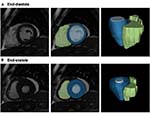 Risk factors for heart disease change heart structure and appearance
Risk factors for heart disease change heart structure and appearance
22 December 2021
A new study led by researchers at Queen Mary University of London suggests that certain risk factors for heart disease are linked to common changes in the structure and appearance of the heart.
 More diversity improves genetic research into cardiovascular disease, according to new study
More diversity improves genetic research into cardiovascular disease, according to new study
8 December 2021
A new study, co-led by Queen Mary University of London, has made the case for more diversity in genetic research.
 New £11.6 million PhD Programme for health research in underrepresented populations
New £11.6 million PhD Programme for health research in underrepresented populations
30 November 2021
The Health Advances in Underrepresented Populations and Diseases (HARP) PhD Programme focuses research towards people and diseases that have traditionally been underrepresented in healthcare studies.
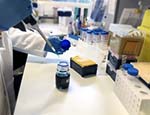 Outstanding technician awarded Papin Prize at HETS2021
Outstanding technician awarded Papin Prize at HETS2021
15 November 2021
A technician from the William Harvey Research Institute at Queen Mary University of London has been presented with a prestigious award which recognises excellence in academia at the UK’s only event dedicated to celebrating the success and achievements of technical staff.
 Whole genome sequencing improves diagnosis of rare diseases and shortens diagnostic journeys for patients
Whole genome sequencing improves diagnosis of rare diseases and shortens diagnostic journeys for patients
11 November 2021
A world-first scientific study, published today in the New England Journal of Medicine, has shown that whole genome sequencing (WGS) can uncover new diagnoses for people across the broadest range of rare diseases investigated to date and could deliver enormous benefits across the NHS.
 New app helps parents identify treatable childhood growth disorders earlier
New app helps parents identify treatable childhood growth disorders earlier
9 November 2021
A new mobile phone app, ‘GrowthMonitor’, places the accurate measurement of children’s height in the hands of parents and carers.
 PhD student to co-host COP26 event
PhD student to co-host COP26 event
2 November 2021
Nikita Patel has been selected to co-host an event at the United Nations Climate Change Conference (COP26) in Glasgow on November 4th.
 WHRI research technician recognised for contribution to endocrine research
WHRI research technician recognised for contribution to endocrine research
13 October 2021
A research technician from the William Harvey Research Institute at Queen Mary University of London has been shortlisted for a Papin Prize, the UK’s only award dedicated to celebrating technical excellence and innovation in higher education and research.
 New model could improve treatment of rheumatoid arthritis patients with cardiac disease
New model could improve treatment of rheumatoid arthritis patients with cardiac disease
16 September 2021
Researchers from Queen Mary University of London have developed a new approach to address cardiac disease in rheumatoid arthritis patients.
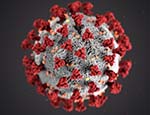 New study links COVID-19 genetic susceptibility with blood clots, thrombophlebitis and circulatory diseases
New study links COVID-19 genetic susceptibility with blood clots, thrombophlebitis and circulatory diseases
7 September 2021
Research led by Queen Mary University of London associates genetically predicted COVID-19 susceptibility with increased blood clot events in legs and lungs, thrombophlebitis, and circulatory diseases.
 New study reveals patients from minority ethnic groups are more likely to be admitted to hospital
New study reveals patients from minority ethnic groups are more likely to be admitted to hospital
19 August 2021
Patients from minority ethnic groups have a disproportionately higher rate of emergency hospital admissions, according to research by Queen Mary University of London and Barts Health NHS Trust.
 New insights into mechanisms of immune cell trafficking in inflammation
New insights into mechanisms of immune cell trafficking in inflammation
16 August 2021
A new study led by researchers at Queen Mary University of London has identified the intracellular catabolic recycling system, Autophagy, within endothelial cells as a new molecular mechanism to limit inflammation.
 Researchers successfully identify new gene variants that cause hypertension in pregnant women
Researchers successfully identify new gene variants that cause hypertension in pregnant women
12 August 2021
An international study, led by researchers from Queen Mary University of London and St Bartholomew’s Hospital, has found a unique pair of gene variants that causes sudden onset high blood pressure in pregnant women.
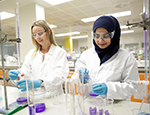 UK number one position for BSc Pharmacology and Innovative Therapeutics - National Student Survey 2021
UK number one position for BSc Pharmacology and Innovative Therapeutics - National Student Survey 2021
26 July 2021
The BSc Pharmacology & Innovative Therapeutics degree programme led by Dr Sadani Cooray at the William Harvey Research Institute at Barts and the London School of Medicine and Dentistry has topped the national subject leader board and is currently number one in the UK having received the highest overall ratings in the 2021 National Student Survey (NSS).
 New insights into uncontrolled inflammation in COVID-19 patients
New insights into uncontrolled inflammation in COVID-19 patients
21 July 2021
Research led by Queen Mary University of London provides new insight into the mechanisms that lead to uncontrolled inflammation in COVID-19 patients.
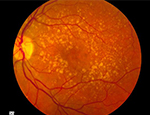 Breakthrough into leading cause of blindness
Breakthrough into leading cause of blindness
19 July 2021
A team of scientists, including researchers from Queen Mary University of London, has discovered that the most common form of adult blindness is probably caused by a failure of at least one of five proteins to regulate the immune system.
 PTH infused insulin pump used as an alternative treatment for young patients with ADH1
PTH infused insulin pump used as an alternative treatment for young patients with ADH1
8 July 2021
Researchers from Queen Mary University of London and the University of Oxford have developed an alternative treatment to increase calcium levels and prevent seizures in patients with the genetic condition ADH1.
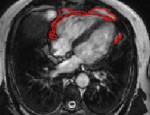 AI predicts diabetes risk by measuring fat around the heart
AI predicts diabetes risk by measuring fat around the heart
7 July 2021
A team led by researchers from Queen Mary University of London has developed a new artificial intelligence (AI) tool that is able to automatically measure the amount of fat around the heart from MRI scan images.
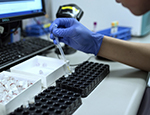 SynAct Pharma AB announces positive data from a Phase 2a trial of AP1189 in Covid-19 infected patients
SynAct Pharma AB announces positive data from a Phase 2a trial of AP1189 in Covid-19 infected patients
1 July 2021
SynAct Pharma AB (“SynAct”) has just announced topline results from the Phase 2a clinical trial of AP1189 in Covid-19 infected patients with pulmonary insufficiency. Patients treated with 100mg AP1189 orally once-daily for 2-weeks achieved respiratory recovery (time to normalization of oxygen saturation on ambient air) on average 3.5 days (35%) quicker than placebo treated patients (6.4 days and 9.9 days on average respectively). Data from this exploratory pilot clinical trial supports that AP1189 may help Covid-19 infected patients recover impaired lung function.
 First nationwide study reveals millions of cancelled operations due to COVID-19 and high risk of death
First nationwide study reveals millions of cancelled operations due to COVID-19 and high risk of death
18 June 2021
The first nationwide study of the impact of COVID-19 on surgery at NHS hospitals has revealed that more than 1.5 million operations were cancelled or postponed during the pandemic and surgical patients who became infected with COVID were five times more likely to die.

18 June 2021
Congratulations to Dr Zahra Raisi-Estabragh who was recently awarded the Royal Society of Medicine (RSM) President’s Gold Medal in Cardiology in recognition of her work developing cardiovascular magnetic resonance (CMR) radiomics as a novel imaging biomarker.
 Could your smart watch alert you to risk of sudden death?
Could your smart watch alert you to risk of sudden death?
8 June 2021
Scientists develop a new algorithm that could allow wearable technology to warn those at risk of dangerous heart rhythm changes.
 Procedure using ultrasound energy found to treat high blood pressure
Procedure using ultrasound energy found to treat high blood pressure
7 June 2021
A minimally-invasive procedure that targets the nerves near the kidney has been found to significantly reduce blood pressure in hypertension patients, according to the results of a global multicentre clinical trial led in the UK by researchers at Queen Mary University of London and Barts Health NHS Trust.
 Ramadan fasting: recommendations for patients with cardiovascular disease
Ramadan fasting: recommendations for patients with cardiovascular disease
17 May 2021
A new publication led by cardiologists and researchers at the Barts Heart Centre and Queen Mary University of London has developed a framework for triaging and where possible, facilitating safe fasting in patients with cardiovascular disease.
 Having a healthier heart is associated with better problem-solving and reaction time
Having a healthier heart is associated with better problem-solving and reaction time
14 May 2021
People with healthier heart structure and function appear to have better cognitive abilities, including increased capacity to solve logic problems and faster reaction times, according to research led by Queen Mary University of London and the Radcliffe Department of Medicine at University of Oxford.
 Professor Munroe elected to prestigious fellowship
Professor Munroe elected to prestigious fellowship
13 May 2021
Congratulations to Professor Patricia Munroe who has been elected to the highly prestigious Academy of Medical Sciences Fellowship.
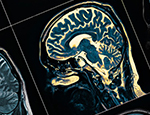 Scientists uncover secret of the hunger switch in the brain
Scientists uncover secret of the hunger switch in the brain
16 April 2021
A 3D structure reveals how a unique molecular switch in our brain causes us to feel full – and may help develop improved anti-obesity drugs.
 How preprints accelerated science communication during the pandemic
How preprints accelerated science communication during the pandemic
8 April 2021
A new study led by Queen Mary University of London researchers has found that during the early phase of the pandemic, approximately 35 per cent of the COVID-19 scientific literature was shared as preprints – freely available manuscripts that are shared prior to peer-review in a journal.
 Call for cardiovascular scientists to contribute data to multinational platform
Call for cardiovascular scientists to contribute data to multinational platform
6 April 2021
The first international platform for sharing cardiovascular data has been launched by euCanSHare, an EU-Canada funded project. Cardiovascular researchers are encouraged to use the platform to browse, deposit and analyse data.
 New genetic clues point to new treatments for ‘silent’ stroke
New genetic clues point to new treatments for ‘silent’ stroke
26 March 2021
Scientists from Queen Mary University of London have helped identify new genetic clues in people who’ve had small and often apparently ‘silent’ strokes that are difficult to treat and a major cause of vascular dementia.
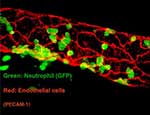
19 March 2021
In the past few months, the William Harvey Research Institute at Queen Mary University of London has seen major funding success in the areas of endocrine and inflammation research.

16 March 2021
'Humans are growing taller around the world. The average adult today is 5% taller than they were a century ago. But how tall could humans get in the future, and what can we learn from the tallest people in the world – the Dutch?'
 School reopening without robust COVID-19 mitigation risks accelerating the pandemic
School reopening without robust COVID-19 mitigation risks accelerating the pandemic
10 March 2021
A group of academics have set out a series of recommendations for schools to reduce the risk of COVID-19 transmission now that they have re-opened, in a letter published in The Lancet.
 Having an unhealthy heart could lead to a higher risk of being diagnosed with COVID-19
Having an unhealthy heart could lead to a higher risk of being diagnosed with COVID-19
9 March 2021
People with unhealthy heart structures and poorer functioning hearts have a significantly higher risk of being diagnosed with COVID-19 infection, according to research by Queen Mary University of London, in collaboration with the Medical Research Council Lifecourse Epidemiology Unit (The University of Southampton).

25 January 2021
Dr Dunja Aksentijevic, Senior Lecturer in Cardiovascular Physiology and Metabolism at Queen Mary University of London, awarded £630,000 for examining immunometabolic cross-talk in the inflamed type 2 diabetic heart.
A new study published today in The Lancet is the first stratified, biopsy-driven, multicentre, open-label, randomised controlled trial that takes the first steps in the integration of molecular pathology into treatment decision making in Rheumatoid Arthritis.
In this Q&A Professor Costantino Pitzalis from the Centre for Experimental Medicine and Rheumatology at Queen Mary's William Harvey Research Institute explains why the R4RA trial represents the first step towards precision medicine.
 Patients from Asian and black backgrounds are more likely to die from COVID-19, large study reveals
Patients from Asian and black backgrounds are more likely to die from COVID-19, large study reveals
22 January 2021
Patients of Asian and black backgrounds suffered disproportionate rates of premature death from COVID-19, according to a study of 1,737 patients by Queen Mary University of London and Barts Health NHS Trust.

21 January 2021
Wednesday 27th January from 1.00pm on Microsoft Teams
 Herd immunity by infection is not an option
Herd immunity by infection is not an option
15 January 2021
In an article, published today in Science, Dr Deepti Gurdasani from Queen Mary University of London and Devi Sridhar from the University of Edinburgh explain why herd immunity by infection is not a strategy that should be considered for COVID-19.
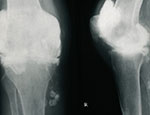 New joint study applies pharmacogenetics to a novel therapy for Rheumatoid Arthritis
New joint study applies pharmacogenetics to a novel therapy for Rheumatoid Arthritis
 Rituximab versus tocilizumab in anti-TNF inadequate responder patients with rheumatoid arthritis (R4RA): outcomes of a stratified, biopsy-driven, multicentre, RCT
Rituximab versus tocilizumab in anti-TNF inadequate responder patients with rheumatoid arthritis (R4RA): outcomes of a stratified, biopsy-driven, multicentre, RCT